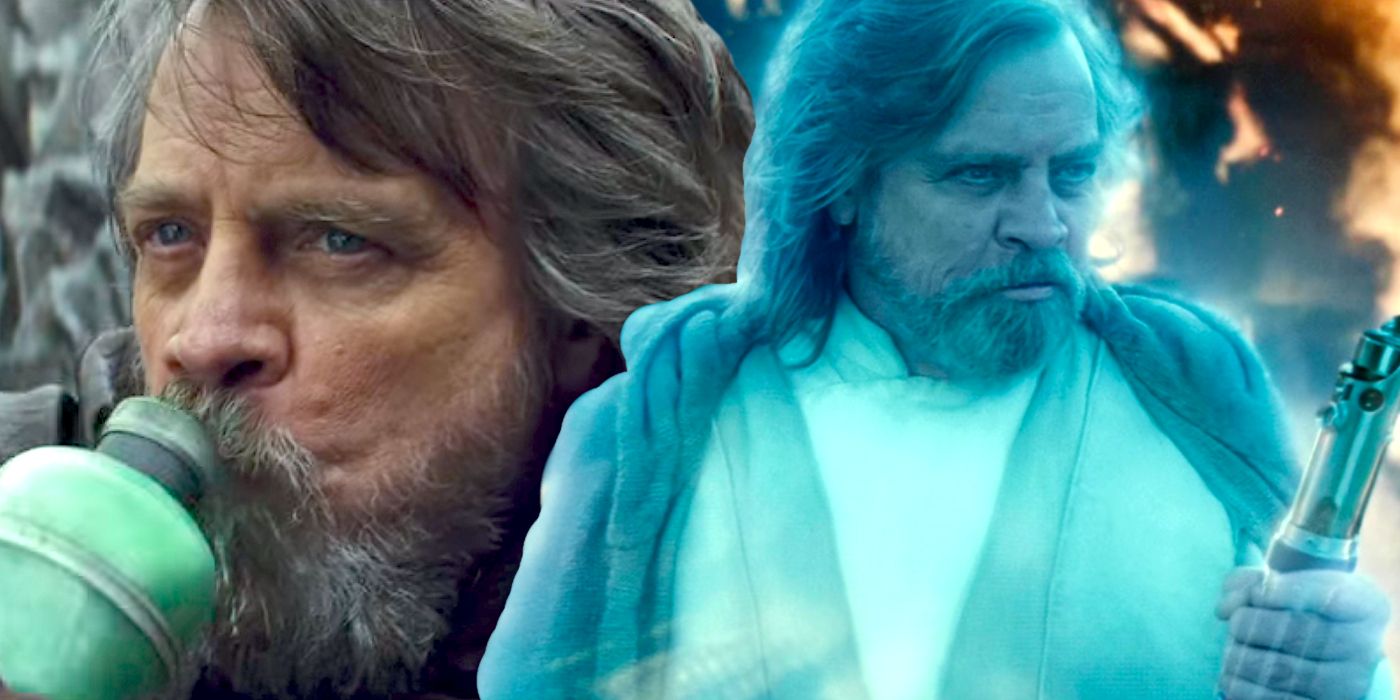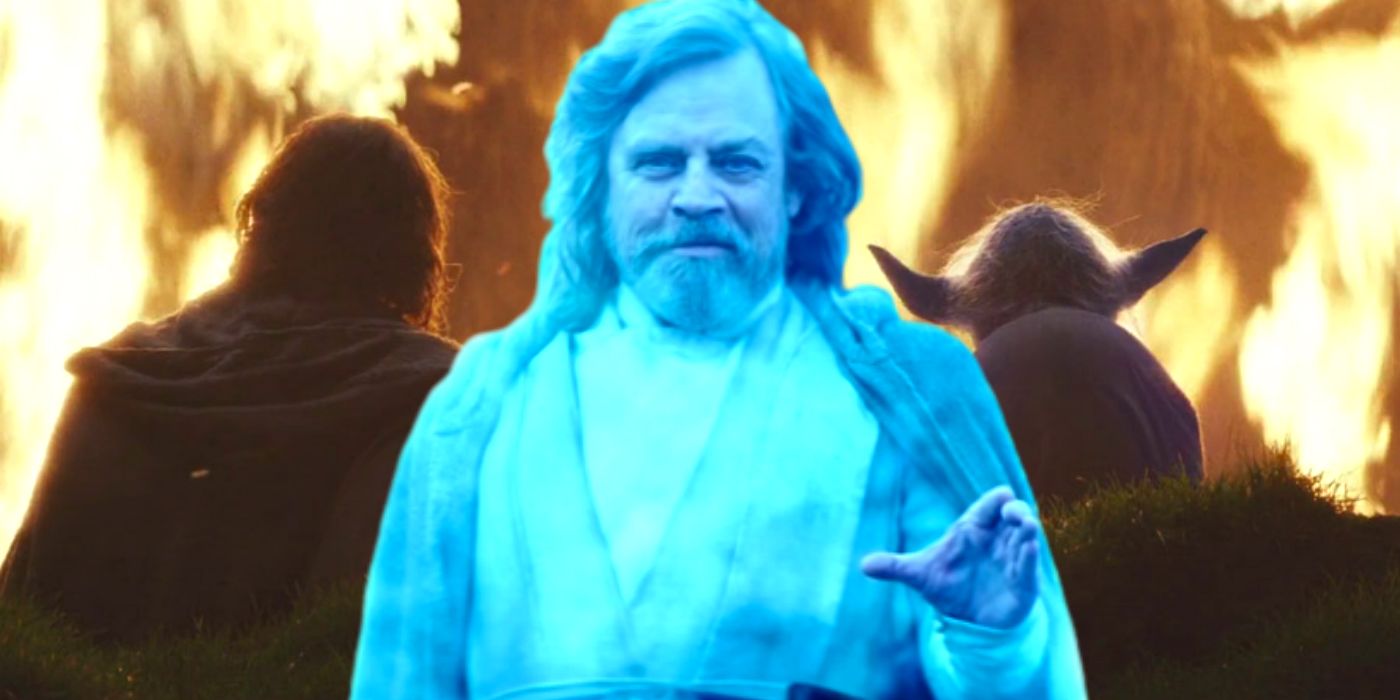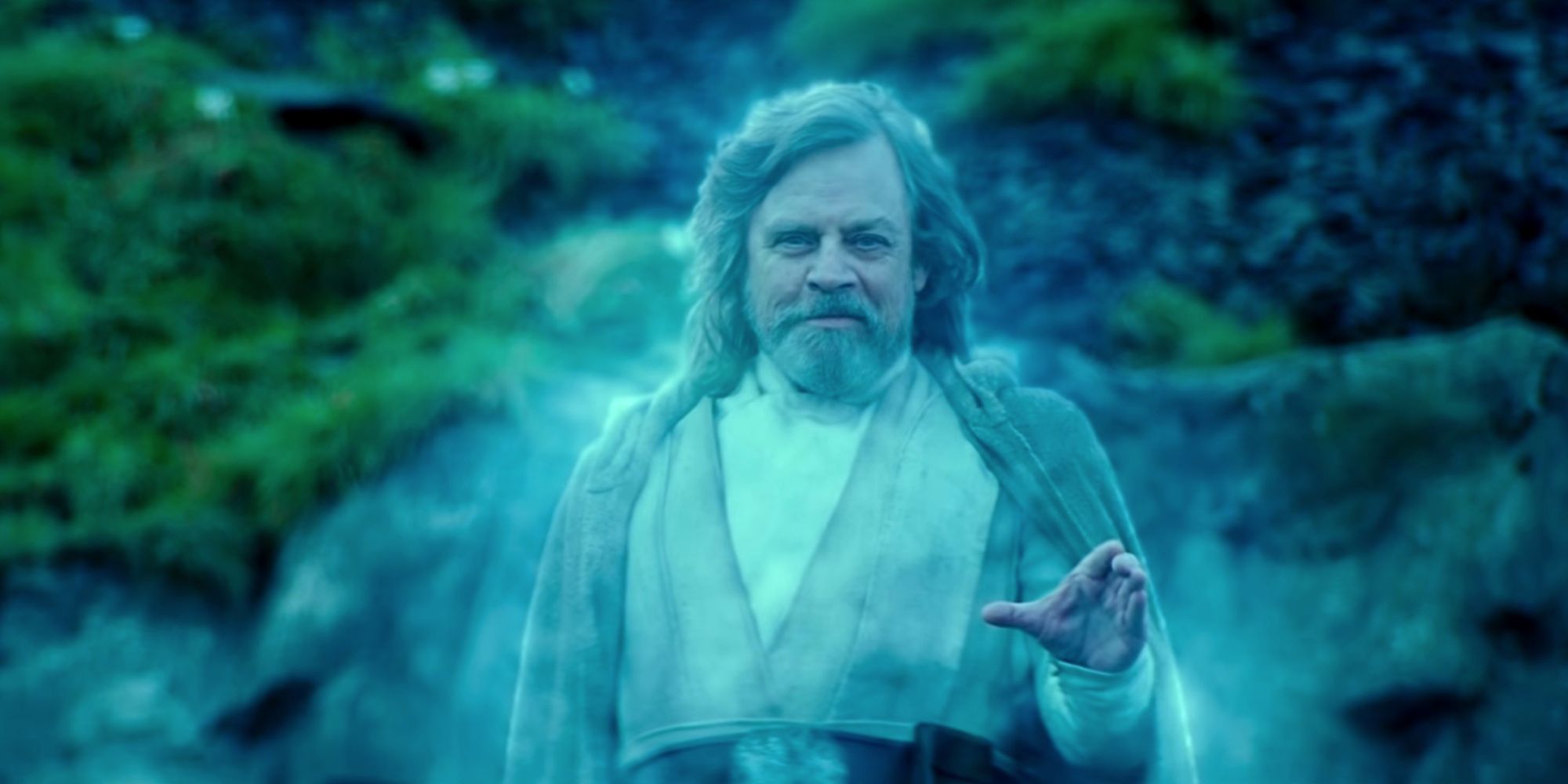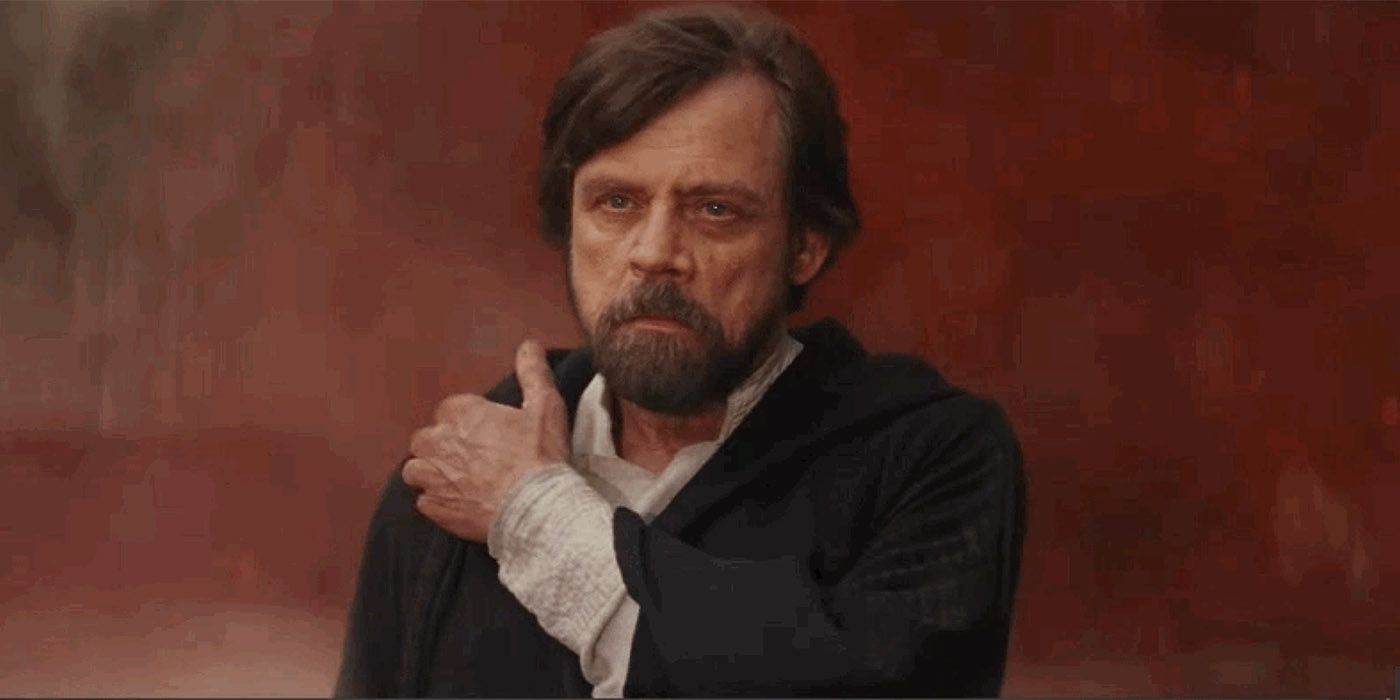Luke Skywalker had divisive roles in both Star Wars: The Last Jedi and Star Wars: The Rise of Skywalker, but he was used far more effectively in the former. The hero of Star Wars' original trilogy, there was a lot of hype around the return of Luke (and actor Mark Hamill) when Disney purchased Lucasfilm and announced they were making a sequel trilogy. Three decades after he last appeared, catching up with one of cinema's most famous protagonists was a tantalizing prospect.
Of course, things didn't quite go the way people expected. Hamill did return in Star Wars: The Force Awakens, but only in the very final scene of the film. While there was some disappointment expressed over the fact he was hidden away for the entire film, it did at least set the stage for a much bigger role to come. Hamill took center stage (or at least close to it) in The Last Jedi, and then came back one last time to round out the Skywalker saga in The Rise of Skywalker.
Far from being the triumphant return of the galaxy's greatest hope, however, this was a version of Luke Skywalker who was older and wiser, taking on a very different role to the one he had in the original trilogy. While that allowed for Hamill to add new shades to him, it also caused some consternation among Star Wars fans, and the differing approaches of The Last Jedi and The Rise of Skywalker meant that there was little cohesion between the portrayals. That being said, the approach taken with Luke in The Last Jedi, while provoking a backlash, was much better than what was done in The Rise of Skywalker.
Last Jedi & Rise of Skywalker Both Had Controversial Portrayals Of Luke
Although Star Wars: The Last Jedi and Star Wars: The Rise of Skywalker are both part of Disney's sequel trilogy, they're complete opposites in terms of movies - they take their characters in different directions, and tonally feel at odds with one another. Perhaps the only true unifier of The Last Jedi and The Rise of Skywalker is the backlash, at least insofar as each movie suffered from one, albeit for contrasting reasons, and indeed because of their completely different approaches to Star Wars. The Last Jedi was criticized for several of its more challenging or surprising plot elements, while The Rise of Skywalker was then panned in turn for moving away from them (alongside several other storytelling issues).
Luke Skywalker represents the division and debate over the two movies in a microcosm: to those who disliked The Last Jedi, he's a great example of what the movie got wrong. Far removed from the hero fans thought they knew, this is a Luke was has turned himself off from the Force, and even tosses his lightsaber away like it's meaningless. Seeing the person who brought down the Empire, and redeemed Anakin Skywalker, turn into this - and what's more, someone who even ignited his lightsaber on his own nephew - was seen in some quarters as a betrayal of who Luke was, and that plays out in a macro sense when talking about what The Last Jedi represents to Star Wars canon for those same fans.
Conversely, The Rise of Skywalker's Luke was the complete opposite; a 180 flip from The Last Jedi, he may be a Force ghost but he feels more like the Luke of old, catching the lightsaber and encouraging Rey in her defeat of Palpatine. For those who see The Rise of Skywalker as nothing but a response to The Last Jedi and a nostalgia-fest, then Luke comes to represent the worst that movie has to offer too.
The Rise of Skywalker's Luke Was A Reductive, Weaker Version
Luke's death in Star Wars: The Last Jedi was never likely to stop him from appearing in some way in The Rise of Skywalker, given it was billed as the end of the Skywalker saga, and as such as series that he himself was at the very center of. It was no surprise, then, when he re-appeared as a Force ghost on Ahch-To, but the nature of his appearance was a disappointment. This Luke felt at odds with the one seen in The Last Jedi - and very much by design - as he catches the saber, gives Leia's lightsaber to Rey, and sends her off on her merry way to defeat the Dark Lord of the Sith that is Palpatine.
There are a couple of problems with this Luke. Firstly, as with The Rise of Skywalker on a broader scale, it feels like pandering; like J.J. Abrams is patting the audience on the head and telling them not to worry, because the Luke Skywalker they know and love is back - the Jedi Knight in shining Force ghost armor. While that may appeal to some of The Last Jedi's detractors, it means what The Rise of Skywalker offers is a reductive take on the saga's greatest hero, stripping Luke of the complexities that had been built up over several movies and lots of battles. Even in Return of the Jedi, when Luke was at his strongest on-screen, there were layers to his character arc, whereas this aims to present him as a far more basic version of that.
It also works against the greater themes of the Star Wars saga, especially with regards to failure. This was a key part of The Last Jedi, especially its Luke/Yoda Force ghost scene. But while that spoke to the power of failure in Star Wars - something seen time and time again across the entire franchise - The Rise of Skywalker rejects that notion and goes for a far more simplistic take. It instead relies heavily on the nostalgia factor of Luke Skywalker being Luke Skywalker, wanting audiences to just bask in the glow of his ghost, rather than really explore any true character motivations, arc, or depth.
Why Last Jedi's Luke Skywalker Was Better Than Rise of Skywalker's
The version of Luke Skywalker seen in The Last Jedi is, as previously mentioned, extremely different from that portrayed in The Rise of Skywalker. Indeed, he's different from every version of Luke in any Star Wars movie - but so he should be. This is a much older Luke, who was fought and defeated the Empire and yet still witnessed the First Order rise in its place; who has seen the failings of the Jedi Order, including his own; he not only had to watch as his nephew crossed over to the dark side, but did so partially on account of him. And, of course, is a Luke Skywalker who in The Force Awakens was revealed to be isolated on an almost impossible-to-find island, a decision made by J.J. Abrams.
With that, Rian Johnson wasn't given a lot of wiggle room in crafting a reason for why Luke was on Ahch-To, and why he didn't return when Han died or the Resistance (and Leia) needed him so badly. The Last Jedi could have leaned into nostalgia and the Luke of old, making him the daring, courageous hero of the original trilogy, who faces down the First Order with a laser sword... and indeed that's exactly what it does do. The Last Jedi isn't a reversal or rejection of who Luke was, but ultimately a celebration of it, yet it earns the right to do that by challenging the character and bringing a whole new side to him.
Luke had seen and been through far too much to simply be the earnest young hero he once was, and to have him be that way would be to wilfully ignore how people change as they grow older, and yet also will always continue to make mistakes. This is a Luke Skywalker who is carrying the weight not only of a 40-year franchise on his shoulders, but thousands of years of Jedi dogma too, and who is able to recognize the flaws of that - and with time, its strengths too.
The Last Jedi fully reckons with Luke Skywalker: the galaxy's hero, the mythic legend, and perhaps most importantly, the human man. It explores every facet of what that means to Luke, and what Luke means to the galaxy. And not only that, but it was able to take Luke to his lowest point - defeated, alone, having failed yet again - and then satisfyingly bring him back, to help land a blow on the First Order without having to engage in violence, arguably one of the truest and most impressive feats of heroism (and of being a Jedi) in the entire saga. The Last Jedi's Luke Skywalker combines the youthful farm boy with the powerful Jedi with the old man with regrets, beautifully bringing his entire story full circle, twin suns and all.




